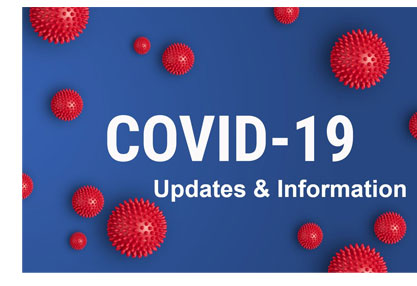THIS ISSUE'S HEADLINES
Key Take-Aways You Should Know Regarding CTA Compliance
Important Massachusetts Decision On Software Sales Tax Apportionment
Stay Informed — PLDO COVID-19 Resource Library

KEY TAKE-AWAYS YOU SHOULD KNOW REGARDING CTA COMPLIANCE
 On January 1, 2021, Congress enacted the Corporate Transparency Act (ÒCTAÓ), which imposes significant new reporting requirements on both domestic and foreign business entities and effectively creates a beneficiary ownership registry at the federal level. Managers, directors, and officers should become familiar with the new requirements, as the CTA imposes substantial penalties for willfully providing false information or failing to report/update beneficial ownership information. Violating the CTA reporting requirements can result in civil penalties of up to $500 per day the violation continues, and criminal penalties of imprisonment of up to two years and fines of up to $10,000. On January 1, 2021, Congress enacted the Corporate Transparency Act (ÒCTAÓ), which imposes significant new reporting requirements on both domestic and foreign business entities and effectively creates a beneficiary ownership registry at the federal level. Managers, directors, and officers should become familiar with the new requirements, as the CTA imposes substantial penalties for willfully providing false information or failing to report/update beneficial ownership information. Violating the CTA reporting requirements can result in civil penalties of up to $500 per day the violation continues, and criminal penalties of imprisonment of up to two years and fines of up to $10,000.
CongressÕs stated purpose in enacting the CTA is to prevent the use of anonymously formed entities to facilitate tax evasion, securities fraud, money laundering, and other crimes. According to the preamble, each year more than 2,000,000 domestic corporations and LLCs are formed, the majority in states that lack disclosure or reporting requirements similar to those provided under the CTA.
In a detailed advisory describing the new reporting obligations under the CTA by PLDO Senior Counsel Jason P. Jones, he includes key definitions and parameters, and offers five key points that are relevant to business entities and their owners. Please access the advisory here. For more information, please contact Attorney Jones in our Boca Raton, Florida office at 561-362-5020 or email jjones@pldolaw.com.
[back to top]

IMPORTANT MA DECISION ON SOFTWARE SALES TAX APPORTIONMENT
 The case of Oracle USA, Inc. v. Commissioner of Revenue was recently decided by the Massachusetts Supreme Judicial Court in favor of the taxpayer. The case is important for at least two reasons: First, the Court found that Massachusetts taxpayers have a statutory right to apportion the sales tax on software purchased or licensed for use in multiple states even where the software is installed on servers located in Massachusetts and accessed remotely by employees of the Massachusetts customer working in other states. Secondly, the Court held that the Massachusetts legislature has the exclusive power to tax, and rejected the CommonwealthÕs argument that the Commissioner had the power to adopt regulations that not only provided procedures for seeking apportionment, but also determined whether apportionment was available on the relevant facts and circumstances. The case of Oracle USA, Inc. v. Commissioner of Revenue was recently decided by the Massachusetts Supreme Judicial Court in favor of the taxpayer. The case is important for at least two reasons: First, the Court found that Massachusetts taxpayers have a statutory right to apportion the sales tax on software purchased or licensed for use in multiple states even where the software is installed on servers located in Massachusetts and accessed remotely by employees of the Massachusetts customer working in other states. Secondly, the Court held that the Massachusetts legislature has the exclusive power to tax, and rejected the CommonwealthÕs argument that the Commissioner had the power to adopt regulations that not only provided procedures for seeking apportionment, but also determined whether apportionment was available on the relevant facts and circumstances.
As with most tax cases, the CourtÕs analysis of the law is fairly technical, although the facts are straightforward. A Massachusetts based company purchased or licensed software from Oracle. The software was installed on the customerÕs server located in Massachusetts. The Massachusetts sales tax statute obligates the seller (Oracle) to collect the sales tax and pay it over to the Department of Revenue, although regulations promulgated under the statute provide for apportionment in cases where the software will be used by the customer in more than one state. Initially, Oracle was not aware of the customerÕs intended multi-state use. (Less than 20% of its employees using the Oracle software were located in Massachusetts.) Therefore, Oracle collected sales tax based on the full price of the software and paid it over to the Mass Department of Revenue. Upon later learning of the relevant facts, Oracle sought apportionment of the sales tax among the states where it was being used by its customer and a refund of that portion of the sales tax properly allocable to the other states. OraclesÕ requests were denied and the matter was referred to the Massachusetts Appellate Tax Board, which decided the issue in favor of Oracle. The case was then appealed to the Massachusetts Supreme Judicial Court, which also ruled in favor of Oracle.
Apportionment is an important issue because sales tax rates vary widely; ranging from over 9% in some Southern states to zero in states like New Hampshire and Oregon, which have no sales tax. For that reason, this decision will likely attract the attention of other state taxing authorities. Perhaps more importantly, companies that have purchased software that was eligible for apportionment but paid 100% of the sales tax to Massachusetts should consider filing for a partial refund and apportionment of the tax between or among the states where it will be used.
For more information on this decision or other business matters, please contact PLDO Partner William F. Miller at 508- 420-7159 or email wmiller@pldolaw.com. To access this advisory in PDF, click here.
[back to top]

 STAY INFORMED – PLDO COVID-19 RESOURCE LIBRARY STAY INFORMED – PLDO COVID-19 RESOURCE LIBRARY
PLDOÕs team of attorneys continue to add updates and advisories regarding the pandemic and its impact on families, businesses and organizations. To access our COVID-19 Resource Library, click here.
[back to top]
|





 The case of Oracle USA, Inc. v. Commissioner of Revenue was recently decided by the Massachusetts Supreme Judicial Court in favor of the taxpayer. The case is important for at least two reasons: First, the Court found that Massachusetts taxpayers have a statutory right to apportion the sales tax on software purchased or licensed for use in multiple states even where the software is installed on servers located in Massachusetts and accessed remotely by employees of the Massachusetts customer working in other states. Secondly, the Court held that the Massachusetts legislature has the exclusive power to tax, and rejected the CommonwealthÕs argument that the Commissioner had the power to adopt regulations that not only provided procedures for seeking apportionment, but also determined whether apportionment was available on the relevant facts and circumstances.
The case of Oracle USA, Inc. v. Commissioner of Revenue was recently decided by the Massachusetts Supreme Judicial Court in favor of the taxpayer. The case is important for at least two reasons: First, the Court found that Massachusetts taxpayers have a statutory right to apportion the sales tax on software purchased or licensed for use in multiple states even where the software is installed on servers located in Massachusetts and accessed remotely by employees of the Massachusetts customer working in other states. Secondly, the Court held that the Massachusetts legislature has the exclusive power to tax, and rejected the CommonwealthÕs argument that the Commissioner had the power to adopt regulations that not only provided procedures for seeking apportionment, but also determined whether apportionment was available on the relevant facts and circumstances.